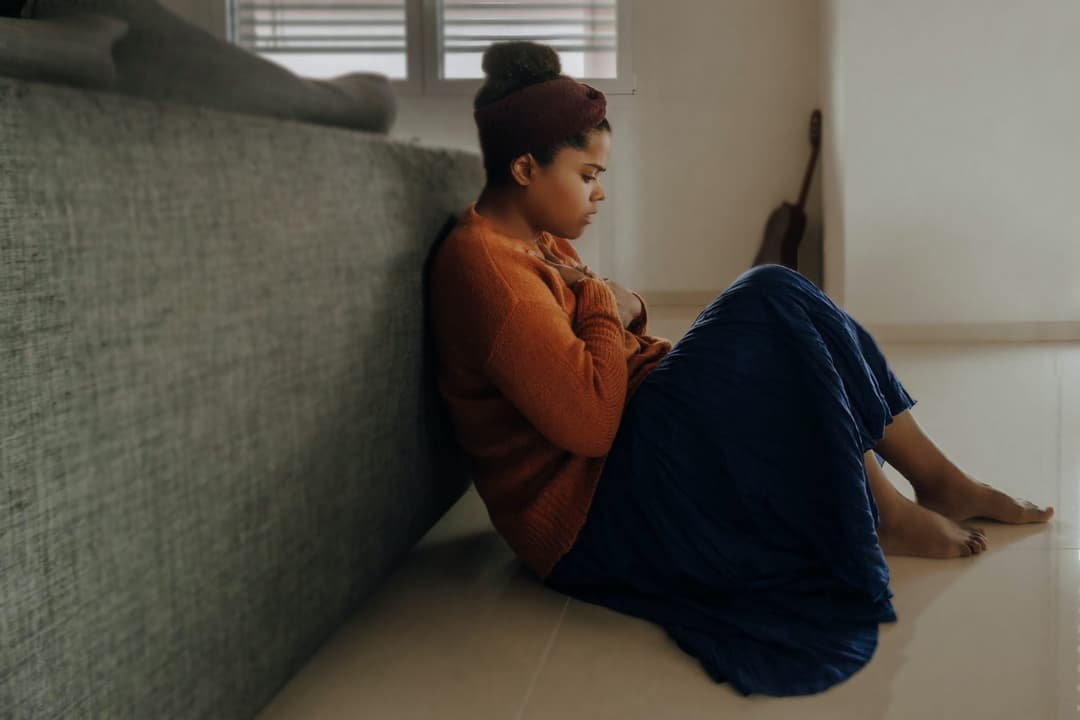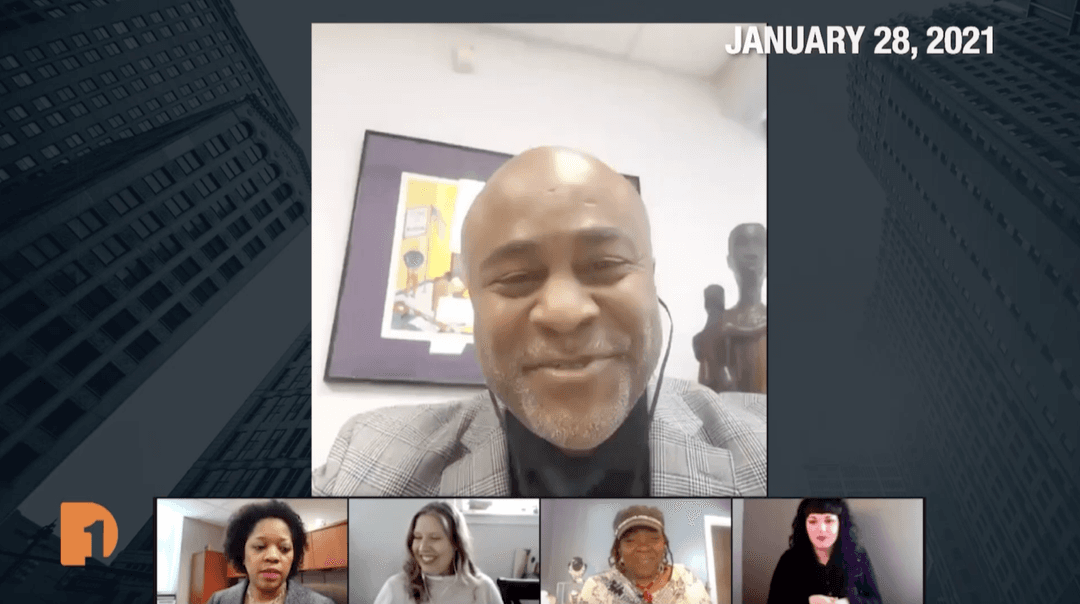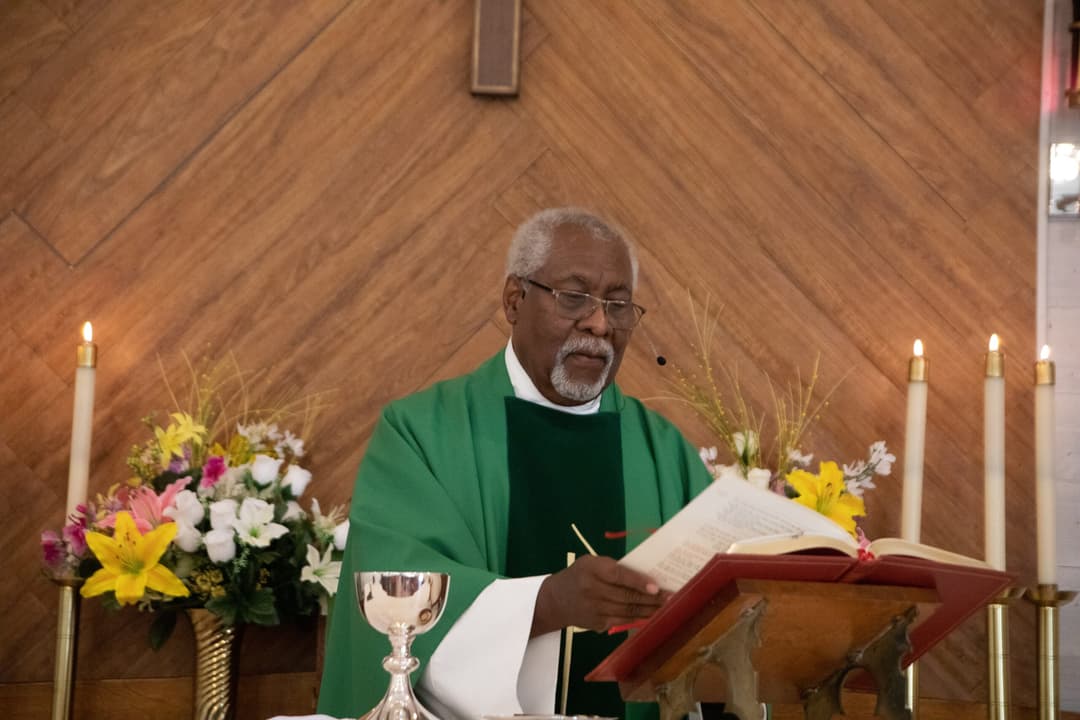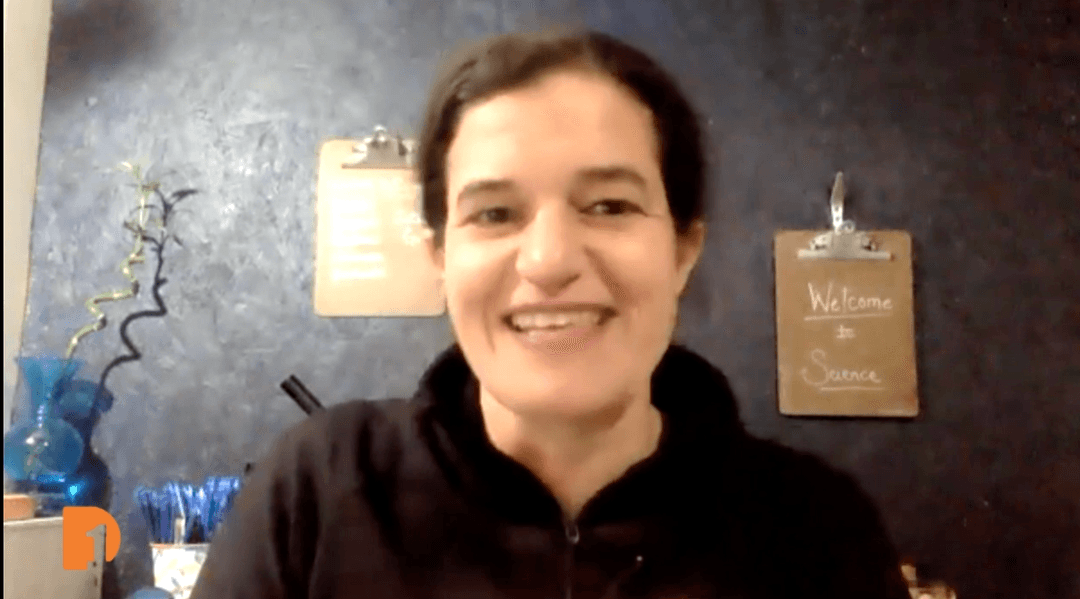Crystal Coleman, Clinical Director at the Children’s Center
Apr 22, 2020
Mental Health: Working in Crisis Mode
The Children’s Center in Detroit and Wayne County delivers mental health services for children and families, and has been deluged this past month because of the trauma caused by COVID-19.
One Detroit’s Christy McDonald talked to Crystal Coleman, Clinical Director at the Children’s Center about how a community, a city, and a region tries to cope with the sudden losses the coronavirus has caused.
Read the full transcript
Christy McDonald With me now is Crystal Coleman. She is the Director of Clinical Services at the Children’s Center. How are you, Crystal?
Crystal Coleman, Director of Clinical Services, The Children’s Center I’m well, how are you today?
Christy McDonald Good. Talk to us a little bit about you’re helping kids and families. And right now, we’re in crisis and you must be in crisis mode. Tell us a little bit about what does some of the families that are talking to you about right now.
Crystal Coleman, Director of Clinical Services, The Children’s Center Absolutely. So as you said, we are definitely in crisis mode and what’s a little bit unique is that it is impacting pretty much everyone. So even if you’re not immediately impacted yourself or your family by the Covid-19, the environment around you is still impacting your body. Right. You’re seeing it on TV. So we’re we’re hearing a lot of families who are experiencing some fear, of course, because some families are losing individuals. They are experiencing some sadness, some grief, some of the typical things that we would see when you lose a loved one. So we’re just really trying to work with them outside of their traditional or the clinical needs that brought them to us in the first place. But this new this new stuff that’s impacting pretty much everyone.
Christy McDonald So we’re talking about the grief of the loss of maybe a loved one. The grief of changing everyday routine. And then you add on to the economic impact that many of us are feeling across the area. Have you ever seen something that’s compounded so many things into one situation that our families and our kids have to deal with?
Crystal Coleman, Director of Clinical Services, The Children’s Center Absolutely not, at least not at such a global space that we’re in right now. So, you know, the families who we work with are ready, challenged with a lot of the things that we’re talking about, especially when it comes to getting their basic needs and economic needs met. So we have this compounded now where even families who were maybe needing a little bit of us are now left with needing more and we’re challenged with being able to try to get them those needs because of that required and necessary social distancing and needing to stay home, to stay safe. You know, we’re just limited in being able to get them the things that they want on our campus. We have what we call the boutique where they work typically be able to get a lot of those things, and that’s unavailable to them right now. There’s transportation barriers, even though there are plenty of places that here giving away food for families who need it, they still have the challenge of getting there. So it’s it’s never been this global and impacting just about everyone who we’re working with.
Christy McDonald You know what I think about families and kids, you know, I know even from my own family, I feel that we’re going to be forever changed by this. And we’ve we’ve done a lot of conversations at One Detroit about children and trauma and the trauma they experience in everyday life and how that impacts who they who they are shaped to be down the line. Talk to me a little bit about those concerns of the impact of trauma on kids and moving through an event like this that we really don’t see an end to.
Crystal Coleman, Director of Clinical Services, The Children’s Center Absolutely. So it will it’s exactly the same things that you would see on an individual basis on someone experiencing trauma that’s more personal and unique to their family. So I will say that it could potentially be something that we can utilize to maximize our work with families, because it is something that more people will be able to relate to. So there won’t be this secret that you can’t talk about or that people will judge you about because we’re all experiencing it. So I think it will be important for us to remember how that can lend support in and of itself to everyone. Outside of that, you can’t expect that, especially children who may not understand a little bit of what’s going on or expecting that, you know, well, when this goes away, then things will be back to normal. But outside of the experiences and the economics, like you talked about, their personal lives could potentially be changed forever, too. We don’t know what jobs are going to look like if the parents will be able to go back to those jobs that they had. So, you absolutely need to look out for those traditional signs of significant changes in your child. So, of course, you know, you can expect at this point, at this point to see some sadness, see some worry, have some confusion about what’s going on and want to make sure you limit the exposure that your child has to this information online, on the television, in your own personal conversations or family. You want to make sure that you’re not continuing to expose them to what could be traumatic and cause more confusion on an ongoing basis, but you do want to balance that with talking about it. You don’t want to push them. You don’t want to act like it’s not existing. You do want to be very realistic because you don’t know if it may come and hit closer to home. And it’s going to be something that you have to deal with at that point.
Christy McDonald Are there any better coping tools that that we can kind of give our kids right now besides either encouraging them to talk about it, not exposing them to too much information? Or is there a way to kind of help them move through it or get them and get them away from it for a little bit?
Crystal Coleman, Director of Clinical Services, The Children’s Center Absolutely. So one of the things that we are really encouraging families to do, which gonna be a little bit a little bit difficult because, you know, we’re all sort of in a home environment, at least in sort of a relaxed mood. So we want to just be there. So we are really encouraging families to create and stick to a routine or schedule on a day to day basis so that the children, the other parents sort of know what to expect. We want them to have some alone time and be able to explore like children do, whether that’s being able to talk on the telephone with their children, have sibling time, you know, without the parents. We don’t want them to have to always be sort of good and sitting and being still, because that’s just really unnatural for a child.
Christy McDonald For anybody.
Crystal Coleman, Director of Clinical Services, The Children’s Center Exactly. We also want to encourage activities for the family. This is a great opportunity to bond. And that’s a lot of what I’ve been hearing, at least in my personal life as well, is that this is giving people an opportunity because they have time on their hands to make those phone calls. People are getting creative. And people who typically watch sort of shy away from technology are using the video platforms a little bit more. So really, you know, creating as much of a supportive and structure routine in your home as possible. Again, limiting the exposure but allowing time to talk about it. You could even be as creative as saying, okay, we’re just gonna have one daily update about what’s going on or we’re gonna talk about it two times a week. But you want them to know that they can come to you with questions, be supportive, be caring. You know, don’t sort of assume there’s nothing for you to worry about or assume that a child isn’t worried about Covid. Make sure that they know that it’s okay and it’s an open space for them to be able to ask those questions and understand a little bit more.
Christy McDonald Do you think that this pandemic will change the way we look at counseling services, at mental health about any kind of resource to help us mentally process things in the future? Because sometimes people don’t want to talk about it, but it would seem to be that now, more than ever, we need to take into consideration where we are mentally to be able to deal with whatever is going to happen down the road.
Crystal Coleman, Director of Clinical Services, The Children’s Center Absolutely. I think that that really borders on where we were are ready and the mental health field and helping people better understand what trauma looks like and how it impacts people and how that impact looks on a day to day basis. So, again, this is still a traumatic experience. You can expect to have the same sort of…sometimes we call it toxic fallout, meaning some of the negative impacts that trauma have on your life, your relationships, your mood, your mental health. You can expect that. I think, again, that we can use this this global effect to be supportive to one another. I do expect that more people probably will be open to getting mental health services because, again, this is not some secret thing that just happens that they are family. So knowing that more people experience that and most people are struggling with and I need some support, I do think that we will probably see more people willing to enter into mental health services, at least specifics of this and utilize some of those support services.
Crystal Coleman, Director of Clinical Services, The Children’s Center And you’re able right now to connect with your clients through technology. This is it’s really changed the way we are interacting with everyone.
Crystal Coleman, Director of Clinical Services, The Children’s Center Absolutely. We previously and traditionally, especially in the public sector. So in the community mental health space, therapy was only face to face in an office or in a group setting in a room. And, you know, we’ve seen some private sectors where they have already ventured out a little bit more. So texting and video and telephone calls. But this is very new for us. We literally had to shift the way we did business every day within four days to be able to still meet with our families. Some of them were not ready for this. Some of them opted out and said, nope, you know, we’ll just give it a chance and we’ll come back you know, when the campus is open. But what we did find is that once it became prolonged, you know, much longer than we expected it to be, then more families were willing to engage in this process. So we tried to just offer multiple options so that if it was a technology issue, there were like several different video options for families based on what they have accessible. And as a last resort, if we can’t get any video conferencing going or for some reason our families really don’t feel comfortable with that than we are actually able to do telephone.
Christy McDonald You have a lot on your plate and everything has been changing every day for these last three to four weeks. What I guess what keeps you up at night as you plan for the next day and in serving all these families?
Crystal Coleman, Director of Clinical Services, The Children’s Center So I will say at this point, because we started our transition on the 16th of March. So I literally sat in the meeting earlier today with my peers is that I feel like we’ve sort of settled into what is the current normal for us. We have a lot more families engaged. We continue to reach out. Even those families who say, no we’ll wait. We’re reaching out to them on a weekly basis, just to check in. Those check-ins do sometimes results in them saying, okay, you’re right, I’m ready, let me go ahead and do it. Initially, we were not accepting new clients, but we as they got, you know, as it became a longer time period, we were like no, we need to really be there for the community. We actually were started up our crisis care services as well, which is really we thought it would be so much more a challenge to do without being physically present with the family because of the observations that we utilize in assessing families but, we just figured at this point we have to do what is available so that they do have services and so that they can’t continue to rely on us for that support that we were already providing them.
Christy McDonald All right. Crystal Coleman, Director of Clinical Services at The Children’s Center. Thank you so much for your time and everything that you’re doing to keep our families as well.
Crystal Coleman, Director of Clinical Services, The Children’s Center Thank you. Thank you for having me. It’s a very important topic. I’m very happy that so many people are looking at it and giving us that opportunity to welcome them to our services.
Christy McDonald You can find more at one Detroit PBS.org or subscribe to our social media channels and sign up for our one Detroit newsletter.
Stay Connected
Subscribe to One Detroit’s YouTube Channel.
Catch the daily conversations on our website, Facebook, Twitter, and Instagram @detroitperforms
Related Posts
Leave a Reply
Your email address will not be published. Required fields are marked*




























